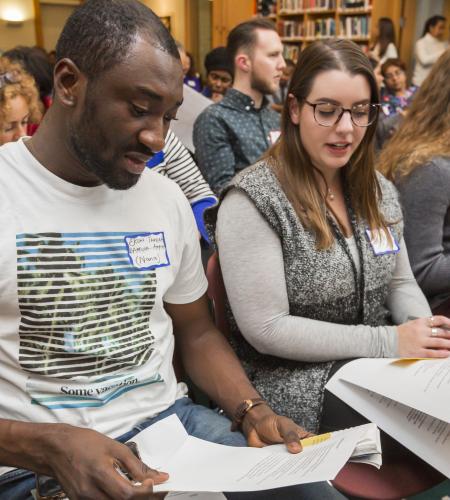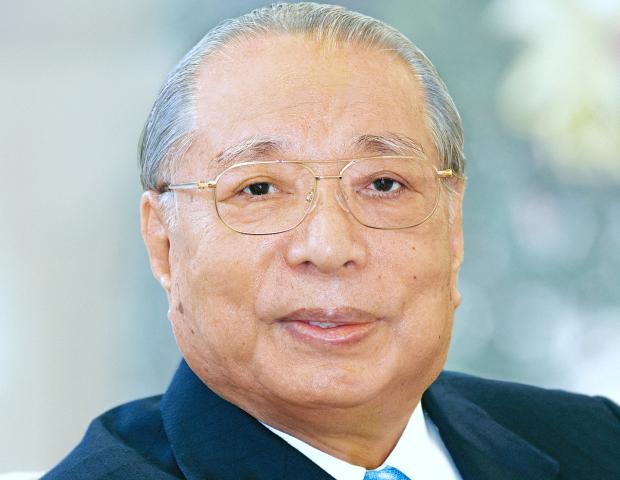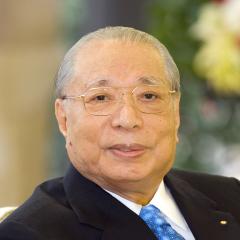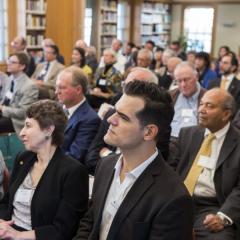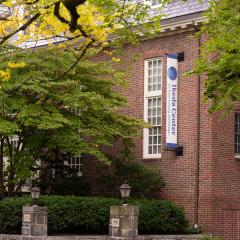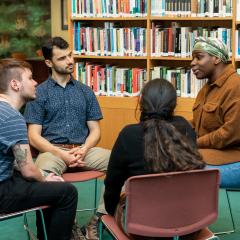Congratulations upon the opening of this conference commemorating the 10th anniversary of the Boston Research Center for the 21st Century!*
I would like to express my deepest appreciation to those of you who have been supporting the Center, and especially to Professor Tu Weiming, Director of the Harvard-Yenching Institute, and Dr. Richard Clugston, Executive Director of the Center for Respect of Life and Environment, whose organizations are cosponsoring this event. In addition, I would like to welcome Professor Steven Rockefeller and all other distinguished guests.
In September of 1993, I presented a lecture on “Mahayana Buddhism and Twenty-first Century Civilization” at the Harvard-Yenching Institute. At that time, in my speech, I emphasized the importance of conducting “open dialogue” with an “open heart,” referring to the life of Shakyamuni Buddha as an example of a person who lived a life free of dogmatism and insularity. Coincidentally, this was also the same year Professor Samuel Huntington of Harvard University published an article entitled the “The Clash of Civilizations?” (Foreign Affairs, Summer 1993) which subsequently created a great stir amongst the world’s intellectuals.
Since the tragedy of September 11th two years ago, many people have been suffering from intense anxiety and fear, imagining that such a “clash of civilizations” may soon occur on a global scale. However, the main force in the twenty-first century will neither be civilization nor religion, but rather human beings. Therefore, in this time of severe trial, humanity must take the first step on the path of courageous dialogue, which will connect people heart-to-heart and pool their wisdom. Open dialogue is the only way peaceful coexistence will occur; it will transform prejudice to understanding, mistrust to empathy, and conflict to harmony. I firmly believe that through the humble efforts of sincere individuals seeking to realize the value of diversity and to forge a universal code of ethics amongst human beings, the fertile soil of a “dialogue of civilizations” will be cultivated. From carefully planted seeds an array of beautiful flowers will blossom, each one highlighting the unique beauty of the others.
Professor Tu Weiming has actively participated in a panel of Eminent Persons engaged in the United Nations Year of Dialogue Among Civilizations (2001); and Professor Steven Rockefeller, who has kindly agreed to give the opening address at this conference, has contributed greatly to the drafting of the Earth Charter, which declares a code of ethics for global citizens based on unprecedented worldwide grassroots dialogue. I would like to praise all these great efforts in cultivating the path of dialogue in times of violence and hatred.
The significance of dialogue lies in the honest effort to value each person’s perspective, to learn from differences, and to open up the “eyes of the heart” through which a universal understanding can emerge.
It cannot be disputed that the ideas and spiritual understandings of numerous ethnic groups, full and rich with wisdom, as well as the voices of women all over the world, are often marginalized and go unheard. As individuals in a larger web of humanity, we must sincerely listen to these voices, searching for the guidance they offer toward achieving a state of collective coexistence.
Toward this end, I offer prayers for the success of this conference that seeks to provide a safe haven where many voices may be heard. I am pleased to know that the quest for ideal relationships between the “self” and the “other” – including other cultures and environments – will inspire your discussions.
The concept of Engi, or “dependent origination,” teaches that nothing exists by itself and that everything exists in mutual dependency. This is true amongst human beings, between human beings and nature, and within the natural world. It does not, however, mean that everyone is dependent upon others. Rather, it explains how each living being maintains an independent existence while mutually enlightening and elevating one another’s life condition and seeking peaceful coexistence. By valuing each individual within the whole, and building empathy and trust, human beings can develop a firm alliance of harmony and solidarity.
Now is the time for people the world over to seek the means of creating a “human civilization” that will contribute to the peace and happiness of humankind, harmonizing our differences in ethnicity, culture, and language. Toward the realization of this goal, I am personally determined to expand the circle of global dialogue and further develop a network of solidarity.
I conclude my congratulatory message with a prayer that the Boston Research Center for the 21st Century, with the leadership of its director Virginia Straus, will steadily develop into an oasis for enlightening dialogue and, with the kind support of those present today, will shine even more brightly as a beacon of intellect and understanding in the years to come.
Daisaku Ikeda, Founder
September 26, 2003
* Name changed to the Ikeda Center for Peace, Learning, and Dialogue in 2009.
